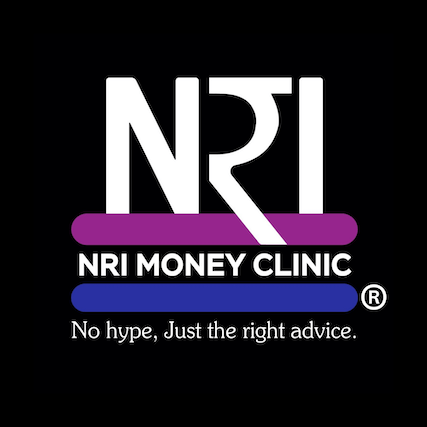You’re an NRI. You earn in one country, invest in another, and fly through a third. But when money moves, two Indian laws wake up: FEMA and the Income-tax Act. They sound similar, often get mixed up, and sometimes apply at the same time. Here’s a clean, no-nonsense way to keep them straight — and stay on the right side of the rules.
The Big Idea (Remember This!)
Income-tax Act = what income is taxed, at what rate, and for whom.
FEMA (Foreign Exchange Management Act) = how foreign exchange moves in and out of India, which bank route you use, and what forms/compliances sit around the money flow.
If it’s about taxing income, think Income-tax. If it’s about moving money (inward/outward remittances, account types, repatriation, AD bank rules), think FEMA.
Everyday Scenarios (Decoded Quickly)
1) “Do I need an NRO? Can I keep a resident savings account?”
If you’re an NRI, you should not be operating a regular resident savings account. Under FEMA/RBI rules, you maintain NRO/NRE accounts (as applicable). Conversions when your residential status changes are a FEMA requirement, not an income-tax one.
2) “Can I transfer from my old resident savings account to my NRO?”
Free-for-all transfers aren’t okay. This sits under FEMA/RBI process and documentation — not income tax. Convert the account first, then transact the right way.
3) “Why is my bank saying ‘use one bank only’ for foreign exchange?”
For foreign exchange remittances, you typically operate through one Authorized Dealer (AD) bank in a financial year. That’s a FEMA operational rule (with a process if you change it).
Who Is an NRI? (Don’t Fall for the 182-Days Myth)
Stop counting how many days you were outside India. The law tests how many days you were in India.
If you stay in India ≥ 182 days in a FY → you’re Resident (for Income-tax).
There are other tests too:
60 days in India in the year + 365 days in the preceding 4 years can also make you Resident.
Special rule for certain visitors with India-sourced income > ₹15 lakh: ≥120 days in India in the year and ≥365 days in the preceding 4 years → Resident but Not Ordinarily Resident (RNOR).
Key mindset: Under the Income-tax Act, you first ask, “Am I Resident?” If no, you’re Non-Resident. If yes, you might still be RNOR depending on your history — which affects what gets taxed.
The ₹15 Lakh Twist (When It Actually Matters)
That ₹15 lakh India-income threshold trips people up. Here’s the clean cut:
Visitors to India (Indian citizens/PIOs) with India-sourced income > ₹15 lakh may become RNOR if they cross the 120 + 365 days tests. For many salaried NRIs, this doesn’t change much — RNOR taxation is often similar to Non-Resident (with a couple of additions for businesses or professions controlled/set-up from India).
Deemed Resident rule (Section 6(1A)): If you’re an Indian citizen, not liable to tax in any other country due to your domicile/residence rules there, and your India-sourced income > ₹15 lakh, you can be treated as Resident (RNOR) in India even if you fail normal day-count residency. Translation: globe-trotters who “fall through the cracks” abroad don’t get to avoid tax residency everywhere.
NRE Interest: Exempt — But Only If You’re Allowed to Keep the NRE
NRE interest is exempt because the Income-tax Act gives a specific exemption to individuals eligible to maintain an NRE account. That eligibility is governed by FEMA.
If, under FEMA, you’re permitted to hold NRE, the interest is exempt.
If you return to India for permanent settlement, your FEMA status flips to Resident from that date. You must re-designate NRE/NRO to resident accounts. Keep an ineligible NRE going and the exemption can vanish for the period of ineligibility.
Practical tip: Status changes mid-year can create interesting splits — income before re-designation may stay exempt; after your FEMA status changes, it may not. Always re-designate promptly.
Repatriating Property Sale Proceeds: Two Rules People Mix Up
A general FEMA/RBI rule says a non-resident can’t remit sale proceeds from more than two residential units (lifetime) under that general route.
But there’s also the “USD 1 million per financial year” remittance of assets route for non-residents, which (in practice) operates as a specific, beneficial provision. Many experts treat this as allowing remittance up to USD 1 million per FY, even if sale proceeds involve more than two residential units — with the remainder sent in subsequent years.
Reality check: Banks follow documentation to the dot. Line up your source of funds, purpose, proofs, and the right form with your AD bank.
Documentation & Declarations: Welcome to the Age of Exactness
Income-tax returns increasingly require exact day counts in India (current year + historical windows). Don’t guess. Check passport entries/exits and maintain a neat log.
You may need to quote passport number/TIN (foreign tax ID) if you’re a Non-Resident.
Mismatches invite questions later — better to be precise now.
Quick Self-Audit Checklist (Bookmark This)
Have I converted my resident savings to NRO/NRE (or back to resident) immediately when my FEMA status changed?
Am I using one AD bank for outward remittances, with proper forms & purpose codes?
Is my residency day-count accurate for this year (and prior years used in tests)?
If my India income > ₹15 lakh, have I checked the 120 + 365 and deemed resident scenarios?
Am I relying on NRE interest exemption only while I’m eligible to hold NRE?
For property sales, have I matched my plan to the right FEMA route (general vs USD 1M scheme) with my bank’s compliance team?
Do this, and you’ll eliminate 90% of the common NRI pain points.
Bottom Line
Income-tax Act tells you what gets taxed, who gets taxed, and how much.
FEMA tells you how money may move, which account you may hold, and which bank you must use with what paperwork.
Sometimes, both apply — and that’s okay. Just map your situation to the right buckets and keep your paperwork precise.
When in doubt: talk to a chartered accountant and your AD bank. One keeps you tax-clean; the other keeps you FEMA-clean.


